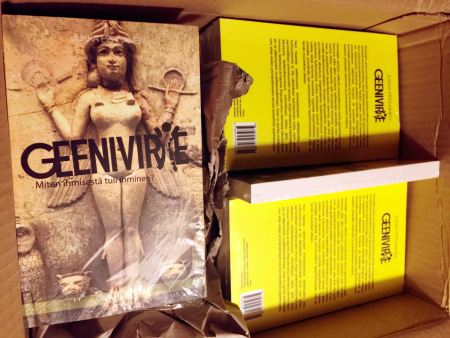There have been attempts to explain human growth and its incompleteness for more than a hundred years. My book “Genetic defect – how we became human?” (2015) also contains an explanation. It states that we are permanently rooted in the psychic mechanisms of our childhood and adolescence. This feature is the key in seeking an answer for our culture, from religions to science and art.
What are my arguments based on? First, cave paintings, spikes, and bone findings are not the only path to the past. The other key to human culture and our distant past is located in our minds. Second, paleoanthropology constructs the human story with archaeological material, but I’ve done the opposite: I explain the historic and prehistoric past with our existing mental and cultural nature.
The book attempts to understand the prehistoric sequence of events that transformed ordinary homo species into a group of individuals seeking the purpose of life. The articles return to the devastating drought in Africa 100,000 years ago. The millennial struggle for survival in difficult conditions created modern humans. The reconstruction of survival is possible and gives new perspectives on understanding cultural phenomena and the human mind. Articles are based on a reinterpretation of existing scientific theories and discoveries and do not include new research.
In the aspect in which the whole intellectual empire— science—is based on the fact that only questions are permanent and accurate and the answers are only a seedbed for new questions, the content of this book is potentially unscientific. It is often said that the average person cannot understand the results of research nor the ultimate nature of the world. I attempt to show that these are false perceptions: anyone can understand them. I have tried to answer the questions with knowledge, which does not require scientific scholarship. I strongly believe in the poetic primitiveness of Søren Kierkegaard and also the modest arrogance of D. H. Lawrence, who once stated: “I am not a scientist. I am an amateur of amateurs“. I don’t think the most exciting thing in the world—the human mind—could ever be hidden from ordinary people. However, I am a realist—not everyone wants to know about it. My ideas may not provide researchers with new information, but I hope they will take something away.




